game theory
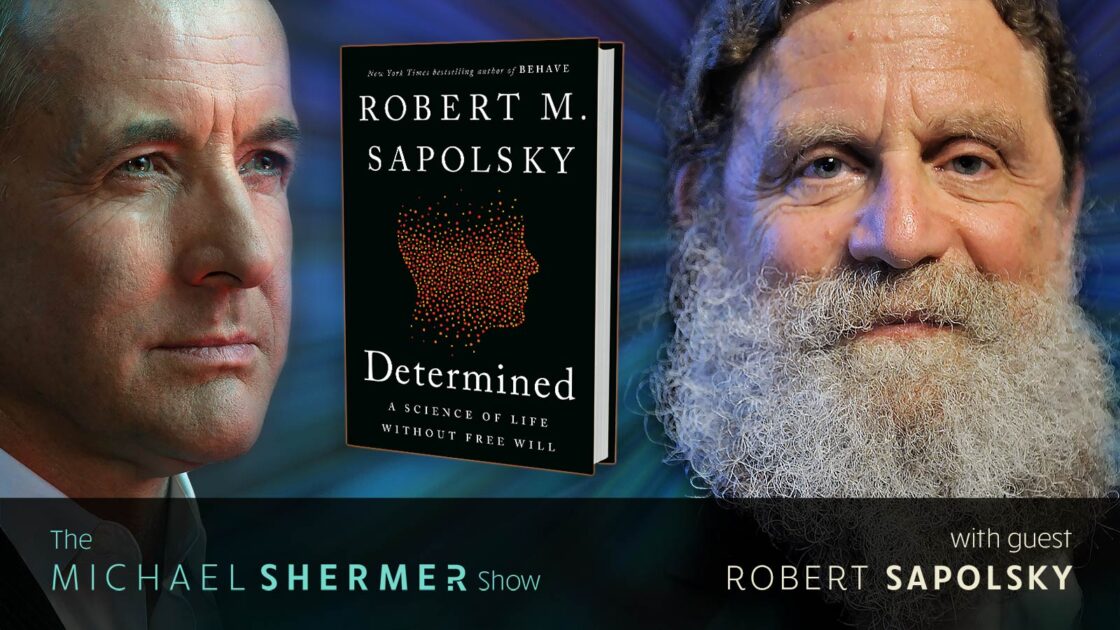
Shermer and Sapolsky discuss: free will, determinism, compatibilism, libertarian free will • Christian List’s 3 related capacities for free will • how what people believe about free will and determinism influences their behaviors • the three horsemen of determinism: (1) reductionism (2) predetermination; (3) epiphenomenalism • dualism • punishment • retributive vs. restorative justice •Is the self an illusion? • game theory evolution of punishment • luck • and meaning (or lack thereof).
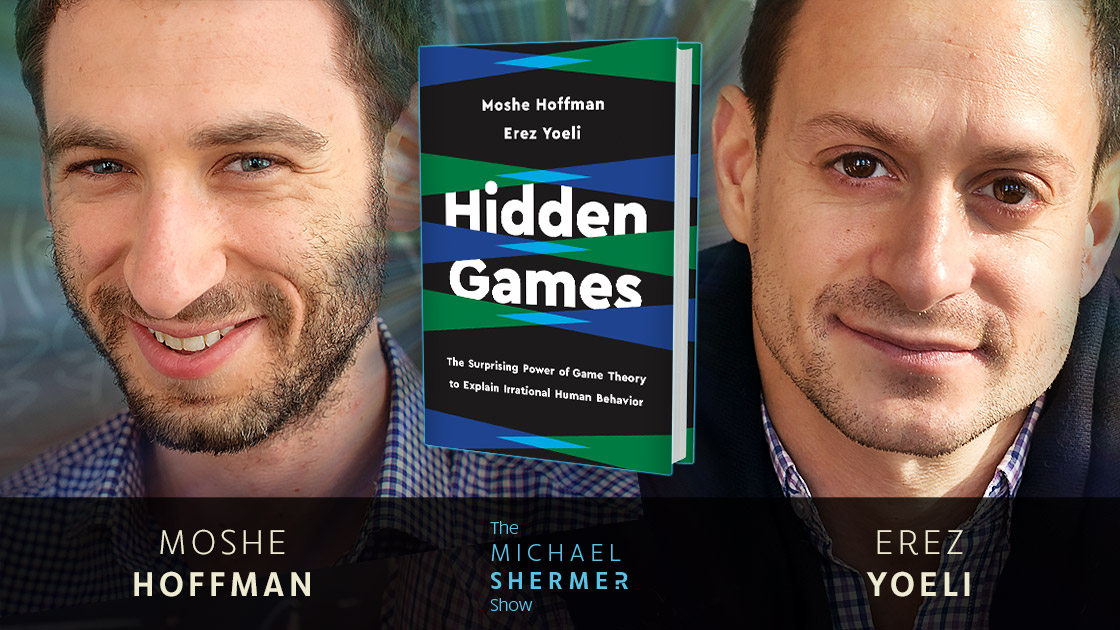
Moshe Hoffman is a research scientist at the Max Planck Institute for Evolutionary Biology whose research focuses on using game theory and models of learning. Erez Yoeli is a research scientist at MIT’s Sloan School of Management, whose research focuses on altruism: understanding how it works and how to promote it.
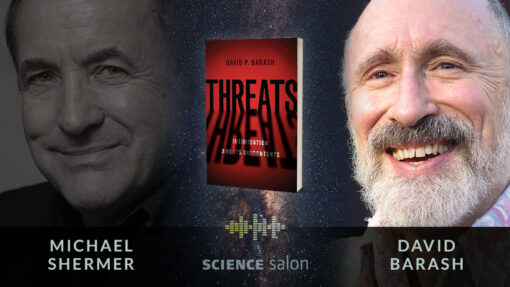
2020 has been one of the most momentous years of the past half century. In this conversation based on the book Threats: Intimidation and its Discontents, Shermer and Barash discuss: the evolutionary logic of nuclear deterrence, threat strategy and motive behind nuking, close calls with nuclear weapons, why they are not a sustainable strategy, the arms race within the U.S. between the Army, Navy, and Airforce, and more…
2020 has been one of the most momentous years of the past half century. In this conversation based on the book Threats: Intimidation and its Discontents, Shermer and Barash discuss: the evolutionary logic of nuclear deterrence, threat strategy and motive behind nuking, close calls with nuclear weapons, why they are not a sustainable strategy, the arms race within the U.S. between the Army, Navy, and Airforce, and more…
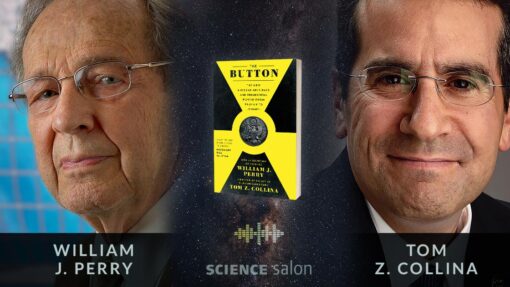
In Science Salon # 127, Michael Shermer speaks with William J. Perry, Secretary of Defense in the Clinton administration and Tom Z. Collina, the Director of Policy at Ploughshares Fund, a global security foundation in Washington, DC, as they share their firsthand experience on the front lines of the nation’s nuclear history.
In Science Salon # 127, Michael Shermer speaks with William J. Perry, Secretary of Defense in the Clinton administration and Tom Z. Collina, the Director of Policy at Ploughshares Fund, a global security foundation in Washington, DC, as they share their firsthand experience on the front lines of the nation’s nuclear history.
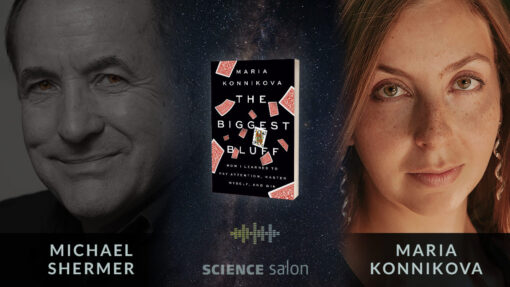
In Science Salon # 121 Michael Shermer speaks with Harvard Psychologist and high-stakes poker player Maria Konnikova about her book The Biggest Bluff: How I Learned to Pay Attention, Master Myself, and Win — the ultimate master class in learning to distinguish between what can be controlled and what can’t.
In Science Salon # 121 Michael Shermer speaks with Harvard Psychologist and high-stakes poker player Maria Konnikova about her book The Biggest Bluff: How I Learned to Pay Attention, Master Myself, and Win — the ultimate master class in learning to distinguish between what can be controlled and what can’t.
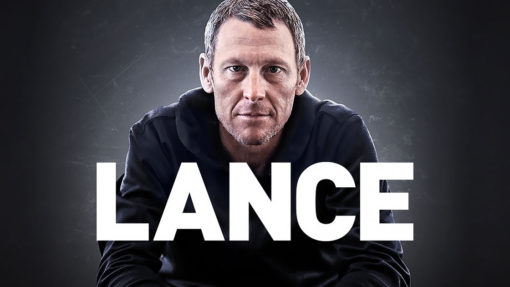
Part 2 of the documentary film “Lance” airs tonight on ESPN and served as a catalyst for this article that employs game theory to understand why athletes dope even when they don’t want to, as well as thoughts on forgiveness and redemption. The article is a follow up to and extension of Dr. Shermer’s article in the April 2008 issue of Scientific American.
Part 2 of the documentary film “Lance” airs tonight on ESPN and served as a catalyst for this article that employs game theory to understand why athletes dope even when they don’t want to, as well as thoughts on forgiveness and redemption. The article is a follow up to and extension of Dr. Shermer’s article in the April 2008 issue of Scientific American.
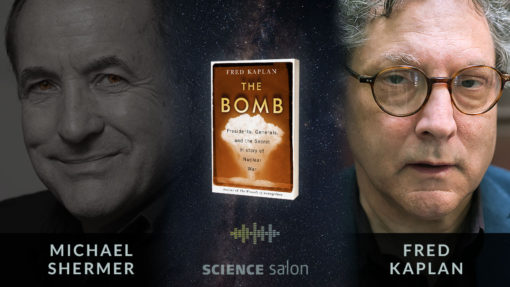
The Bomb is Fred Kaplan’s definitive history of American policy on nuclear war — and Presidents’ actions in nuclear crises — from Truman to Trump. Kaplan takes us into the White House Situation Room, the Joint Chiefs of Staff’s “Tank” in the Pentagon, and the vast chambers of Strategic Command to bring us the untold stories — based on exclusive interviews and previously classified documents — of how America’s presidents and generals have thought about, threatened, broached, and just barely…
In Science Salon # 107 Michael Shermer speaks with Fred Kaplan about his book The Bomb: Presidents, Generals, and the Sacred History of Nuclear War. PLUS, find out who believes in conspiracies and why, and read real conspiracy theories (and conspiracies with no theories) in the latest issue of Skeptic magazine, available now in print and digital formats.
Most people take an attack on their beliefs as an attack on their identity. Andrew Cooper-Sansone avers that to succeed in changing minds and building a better world, we must begin by cultivating a compassionate view of our enemies’ deeply-held and identify-defining beliefs.
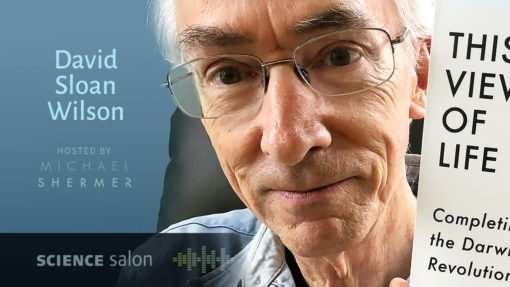
Shermer speaks with evolutionary biologist David Sloan Wilson about: the Darwinian Revolution • solving “is-ought” and “naturalistic fallacy” problems • dispelling the myth of social darwinism • the evolutionary origins of good and evil • group selection • multi-level selection • why nationalism is like religion • how a biologist thinks about immigration and nuclear deterrence • the rise of nationalism and what to do about it…
Humans have long seen ourselves as the center of the universe. This viewpoint — a persistent paradigm of our own unique self-importance — is as dangerous as it is false. In this Science Salon with Michael Shermer based on his new book Through a Glass Brightly noted biologist and evolutionary psychologist David Barash explores the process by which science has, throughout time, cut humanity “down to size,” and how humanity has responded.
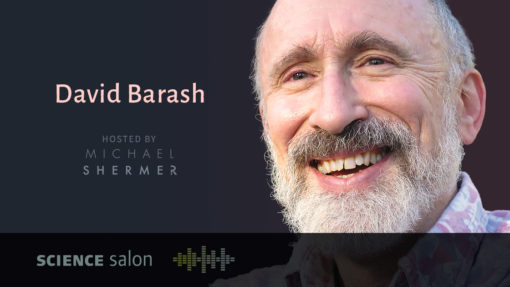
Humans have long seen ourselves as the center of the universe. This viewpoint — a persistent paradigm of our own unique self-importance — is as dangerous as it is false. In this Science Salon with Michael Shermer based on his new book Through a Glass Brightly noted biologist and evolutionary psychologist David Barash explores the process by which science has, throughout time, cut humanity “down to size,” and how humanity has responded.

Michael Shermer reviews Knowing the Score: What sports can teach us about philosophy (and what philosophy can teach us about sports), by King’s College philosopher David Papineau.

Michael Shermer reviews Knowing the Score: What sports can teach us about philosophy (and what philosophy can teach us about sports), by King’s College philosopher David Papineau

Barbara Drescher critiques interpretations of a study on Rock, Paper, Scissors. Can science help you win at Roshambo?
In this week’s eSkeptic we present the complete version of Michael Shermer’s article, originally published in Scientific American, that attempts to answer this question using game theory and behavioral economics and psychology.



















